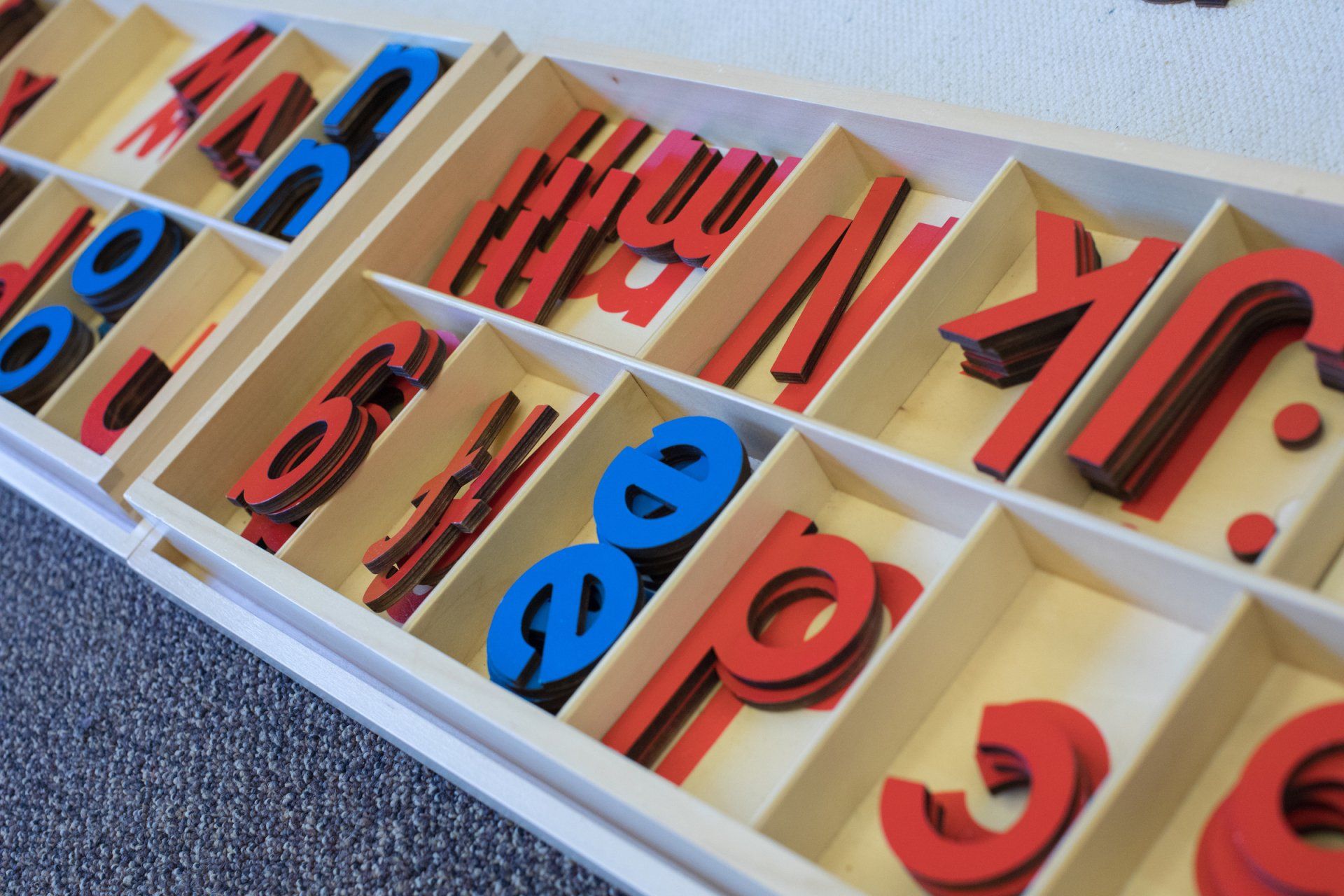
MYTH: Montessori Schools are all pretty standard
Actually, since the Montessori name is not trademarked, there can be a wide variety of approaches within schools that call themselves Montessori. It is important to look for a school’s level of accreditation. The two primary accrediting bodies in the U.S. are Association Montessori Internationale (AMI), and American Montessori Society (AMS). Accrediting bodies offer varying levels of recognition in their membership for schools based on their adherence to Montessori principles. There are more important differences even between AMI and AMS oriented schools, so we highly recommend touring various Montessori schools to see the differences for yourself and find your own Montessori style.
MYTH: Montessori students do whatever they please
This myth derives from a misunderstanding of the term child-centered learning. It is true that Primary students enjoy freedom in what pieces of work they choose. This enables the child to choose the challenges about which they are most excited by, and to take advantage of “sensitive periods” in their learning, wherein they are driven to master a certain skill by repeating it again and again. The teachers are well trained, though, to spot the differences between a child mastering a skill through repetition and a child that wants to repeat tasks out of boredom or for lack of knowing what to do next. Students do not have the freedom to, say, eat snack all day or do nothing but talk to friends for two hours. Montessori teachers are called “guides” for a reason – they allow students the freedom of choosing their direction while ensuring they still reach the final destination.
MYTH: Montessori students have to be quiet all the time
We have heard other people repeat this myth, but since we’ve never seen an all-quiet Montessori classroom, we’re not sure where this myth comes from! While we do help children understand appropriate volume levels for different conversations and different environments as part of our grace and courtesy lessons, our classrooms are always buzzing with activity and conversation.
MYTH: Montessori is all work and no play
In her years working with children, Maria Montessori noticed that children developed a sense of peace and happiness when they were engaged in purposeful work. Of course, children do enjoy laughing, running, playing, and making friends. Luckily, we arrange our days to allow for all of those activities in addition to work time. The true test is to ask a Montessori child how they feel about school. Our students love to come to school and get to work.
MYTH: Montessori is a style that is only useful for preschool aged children
Our Primary graduates who move to first grade often find that they are well ahead of peers from traditional environments, in academics and maturity. However, Montessori benefits don’t stop at age 6. Our Elementary program fosters academic prowess, love of learning, responsibility, independence, and leadership. Elementary graduates excel at self-management, creative problem solving, critical thinking, and interpersonal communication skills.
MYTH: Montessori kids struggle to adapt to the structure of traditional schools
Entering a traditional schooling environment where students sit still at desks and work on one subject at a time, as a full class, requires a brief transition period for Montessori children. Our alumni families report, however, that the transition is typically brief and is managed with great composure by our students. They have learned self-management skills and personal responsibility, so they are able to adapt well to new circumstances and different learning environments.


